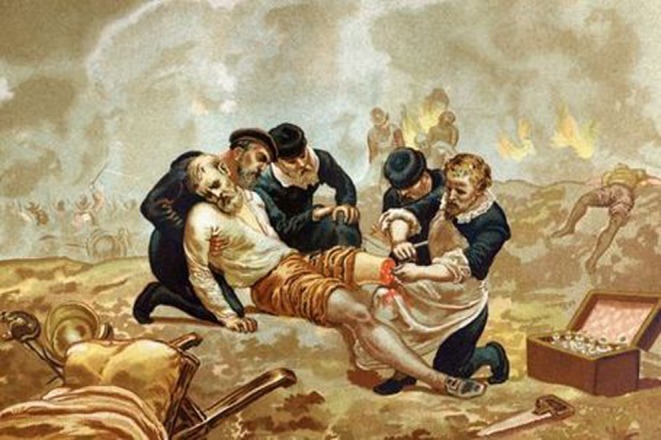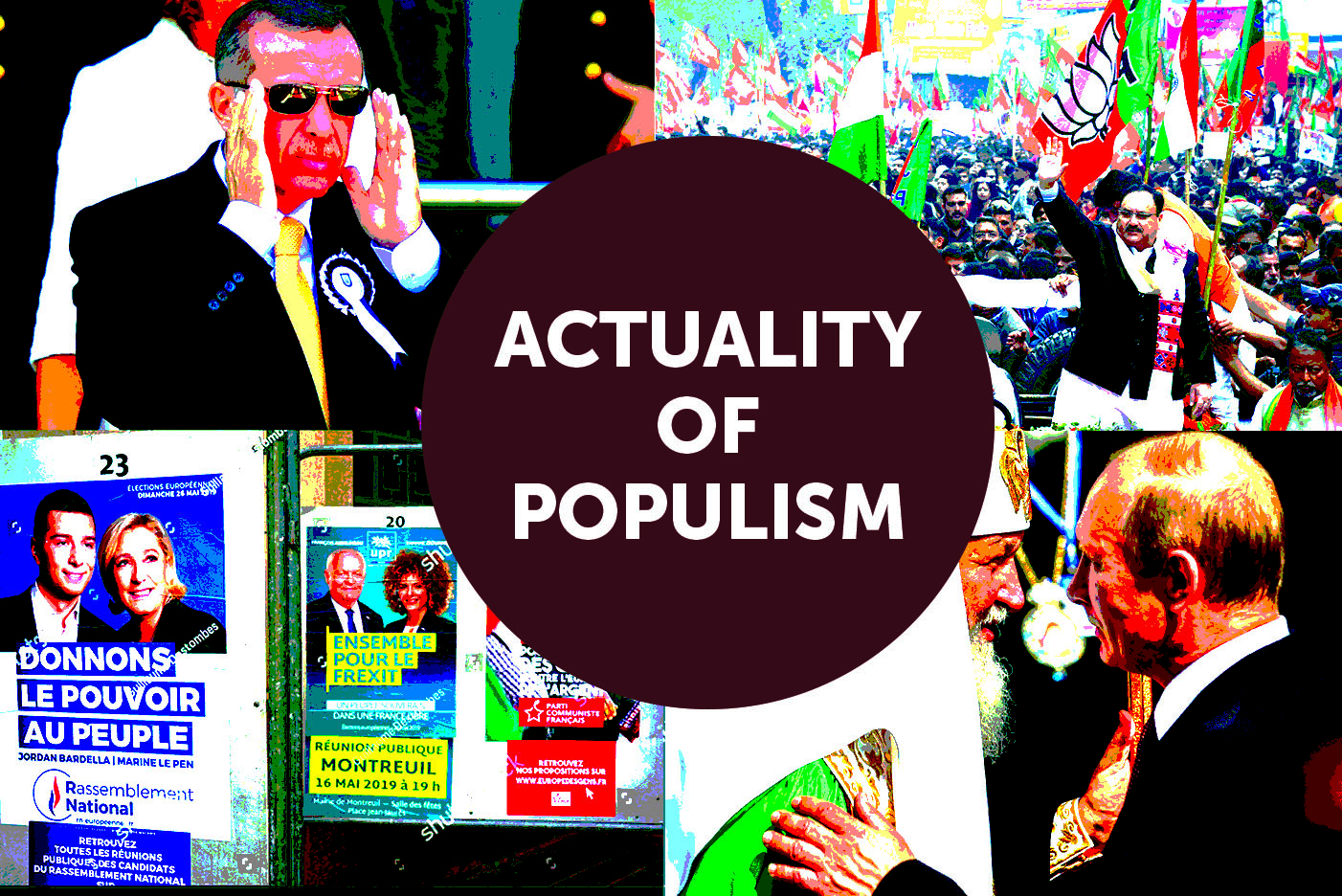


Actuality of Populism
18 May 2021
Waiting for a Transnational EU Public Sphere
8 July 2021By Marc Lazar
For the past few decades, rising populism has been garnering interest and inspiring research in various fields: political science, philosophy, sociology, economy, history, psychology, etc. Not a day goes by without researchers working on this topic receiving an alert about a new book, publication of an article in an academic journal, a think tank report, seminar or conference. At Sciences Po, more than thirty junior and senior researchers are currently working on this topic. Consult the directory.
Although our conceptualisation, approaches and methodologies might differ, we are united by a common theme: taking populism seriously. Our work is not intended to blame any particularly political bodies (be their leaders or citizens) or to denigrate and stigmatise their positions. Neither is our research is inspired by a position, adopted by certain political leaders, who, in response to accusations of populism, resort to reverse stigmatisation, as suggested by sociologist Howard Becker(1) Journet, Nicolas. « Outsiders : études de sociologie de la déviance », Xavier Molénat éd., La sociologie. Éditions Sciences Humaines, 2009, pp. 93-94. , and promote it loud and clear.
A Complex Phenomenon
We also reject the position adopted by researchers who refuse to use the word populism, considering that the vagueness of the notion, its excessive use and ceaseless instrumentalisation should exclude it from any scientific study. On the contrary, we believe that populism is an essential issue that must not be ignored, put into perspective or avoided by using other terms. However, we are very much aware that ‘populism’ is a portmanteau word and that an operative definition must be provided. This definition should underline the fundamental unity of populism in order to identify its essence and importance. However, it must also and at the same time enable understanding of its various forms, depending on the period and country in question. It is also important to analyse the multiple political and sociological characteristics and the heterogeneity of the movements and parties qualified as populist, depending on whether they are in power or part of the opposition.
This edition of Cogito does not claim to provide an exhaustive analysis. We are simply proposing an overview of the diversity and variety of our research on this topic and offering some explanations for its complexity. With contributions from political scientists, economists, historians and a specialist in cognitive sciences, it is organised into two sections to enable comparative approaches.
The Boom of Populist Movements and Parties in Europe
The first section is concerned with ‘populism movements’, to use the term proposed by Hannah Arendt in her famous study, The Origins of Totalitarianism. This approach can be likened to the works of historians on the characteristics of fascism, which differ before Mussolini came into power and once he became head of his country. Here, we are trying to understand the political, economic, social and cultural reasons behind the escalation of populist parties, which are still in the opposition, with a particular focus on European countries.
- Alexis Baudour thus attempts to confound the clichés that claim that the rising popularity of right-wing populists is a mechanical consequence of the economic and social crisis, characterised by rising unemployment, growing inequalities of all kinds and increasing poverty. He shows, with data to support his claims, that in France, there is a notable convergence of votes for the Rassemblement National Party and a feeling of demotion among a proportion of the lower middle classes.
Read the article – Right-wing Populist Vote: Challenging Popular Assumptions - Gilles Ivaldi investigates the political consequences of the Covid 19 crisis, which may lead to the decline of right-wing populists in Europe. Indeed, the health crisis, combined with the colossal amounts of money put on the table by the European Union to boost the economy, the return of the providential state, and the defeat of Donald Trump – supported until the very end by many populist leaders, including Marine Le Pen and Matteo Salvini – , chip away at the effects of their grandstanding. However, rather than pronouncing their eulogy, Gilles Ivaldi brings our attention to the rebound opportunities generated by the epidemic that could be seized by populist leaders.
Read the article: Will the Covid-19 Crisis Mark the Decline of the Populist Right? - Jan Rovny is concerned with a completely different dimension of populist phenomena, that of ethnic minorities. After the euphoria that followed the collapse of their communist regimes, several Central and Eastern European countries have seen a decline of democracy. Jan Rovny offers a new perspective for this phenomenon, developing a theory that initially appears paradoxical. He shows that in countries with large ethnic minorities and a well-organised political system, such as Bulgaria, Estonia and Latvia, populist groups have less weight than in countries with more homogeneous ethnicity, such as Hungary or Poland. Although their higher numbers and presence in the political field encourage the development of national right-wing groups, they also enable the progression of liberal counter-powers.
Read the article: Politics of Ethnicity and Democratic Resilience
Are Populist Regimes Necessarily Authoritarian?
The second field of research is more focussed on analysing populist regimes, their political systems and their grip over society, and the progressive subversion of institutions implemented by populist leaders with the possibility of tipping into an authoritarian regime (in the traditional sense for political science, as defined by Juan Linz(2)cf. Linz, Juan. Totalitarian and Authoritarian Regimes. Lynne Rienner Inc. 2000..However, we also show that the resilience shown by democratic institutions and the mobilisation of civil society can thwart this erosion of democracy.
- Thus, Élise Massicard analyses the case of Turkey, whose history offers some explanations for the country’s propensity towards populism. She explains how the AKP party and Erdoğan have subverted the institutions in their country. She describes what she calls democracy’s ‘descent into hell’, to the point of calling into question the term used to qualify Turkey’s regime. Is it still a democracy in which the new sultan holds a pre-eminent position as a populist or has Turkey already toppled into authoritarianism? This fundamental question can also be raised about countries other than Turkey.
Read the article: Populism in Turkey: Towards the Demise of Democracy? - However, not all populisms and populist leaders are the same. This is clearly illustrated by Florence Faucher’s analysis of the British situation. She has studied Boris Johnson and considered labelling him as a populist leader, in the sense of a style rather than an ideology, even a ‘thin ideology’ to use the expression of political scientist Cas Mudde. Her conclusions are nuanced. She reports that, although the Prime Minister has all the attributes of a populist leader and has made his mark on the Conservative Party, the United Kingdom is unlikely to drift into authoritarianism. The British democracy – which has already experienced outbreaks of populism – has sufficiently solid political traditions to enable it to resist today as it has done in the past.
Read the article: Boris Johnson: a Passing Populist Buzz? - By examining the experience of Donald Trump, historian Mario Del Pero, reaches similar conclusions. To echo the title of his contribution, the American democracy, which has fascinated so many people – such as Alexis de Tocqueville – is running out of steam. He shows how Donald Trump exploited this weariness – and the turmoil caused by the 2008 economic crisis – to win the election and base his term in office on populist and sovereignist recipes. However, while Trumpism has shaken America’s democracy, it has resisted, as demonstrated by Joe Biden’s victory and the resilience of the institutions on 6 January 2021, a day of shocking and totally unheard of events that will remain infamous in world history.
Read the article: United States: a Tired Democracy Under Attack from Trumpian Populism - Although different in many ways, Erdoğan, Jonhson and Trump, along with other populist leaders, have certain behaviours in common. Lou Safra, specialist in cognitive sciences, analyses these similarities via an original approach.
We all know that populists like to trigger an emotional response, clearly differentiating themselves from the colder elocutions of technocrats. While they certainly do not hold the monopoly in this area, they do know how to use and exacerbate fear, detestation and hatred, and how to instrumentalise indignation and anger. Anger against the ‘establishment’, the European Union, foreigners, etc. This anger, expressed on their faces, puts them in a position of dominance, further strengthening their traits as strong men, and sometimes strong women, able to overcome crisis.
Read the article: Does Anger Play Into the Hands of Populism?
The 21st century began as one of populism if we are to believe the title of Pierre Rosanvallon’s latest book, The Populist Century: History, Theory, Critique(3)Pierre Rosanvallon ” Le Siècle du populisme. Histoire, théorie, critique“, Éditions du Seuil, janvier 2020. This echoes claims that the 19th century was that of nationalism, followed by a century of totalitarianism. As we all know, such expression is both evocative and simplistic. However, the fact remains that understanding populism and populisms is of the utmost importance, indissociable from concerns about the current state and future of democracy. As such, it is and will remain to be one of the main fields of study at Sciences Po and other university institutions.
Marc Lazar, Professor and Director of the Centre for History of Sciences Po, is the scientific director of this project. Most of his research is on the history and political sociology of the left wing and populisms in Europe. His recent publications on this topic include works co-authored with Mathieu Fulla, European Socialists and the State in the Twentieth and the Twenty-First Century, Palgrave, 2020, À propos du populisme (About populism) Histoire@Politique, December 2020 (open access) and with Ilvo Diamanti, Peuplecratie. La métamorphose de nos démocraties (Peopleocracy. The metamorphosis of our democracies), Gallimard, 2019.
Notes
| ↑1 | Journet, Nicolas. « Outsiders : études de sociologie de la déviance », Xavier Molénat éd., La sociologie. Éditions Sciences Humaines, 2009, pp. 93-94. |
|---|---|
| ↑2 | cf. Linz, Juan. Totalitarian and Authoritarian Regimes. Lynne Rienner Inc. 2000. |
| ↑3 | Pierre Rosanvallon ” Le Siècle du populisme. Histoire, théorie, critique“, Éditions du Seuil, janvier 2020 |




